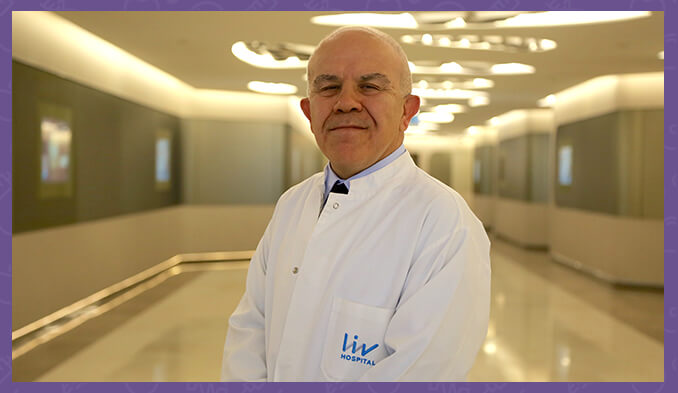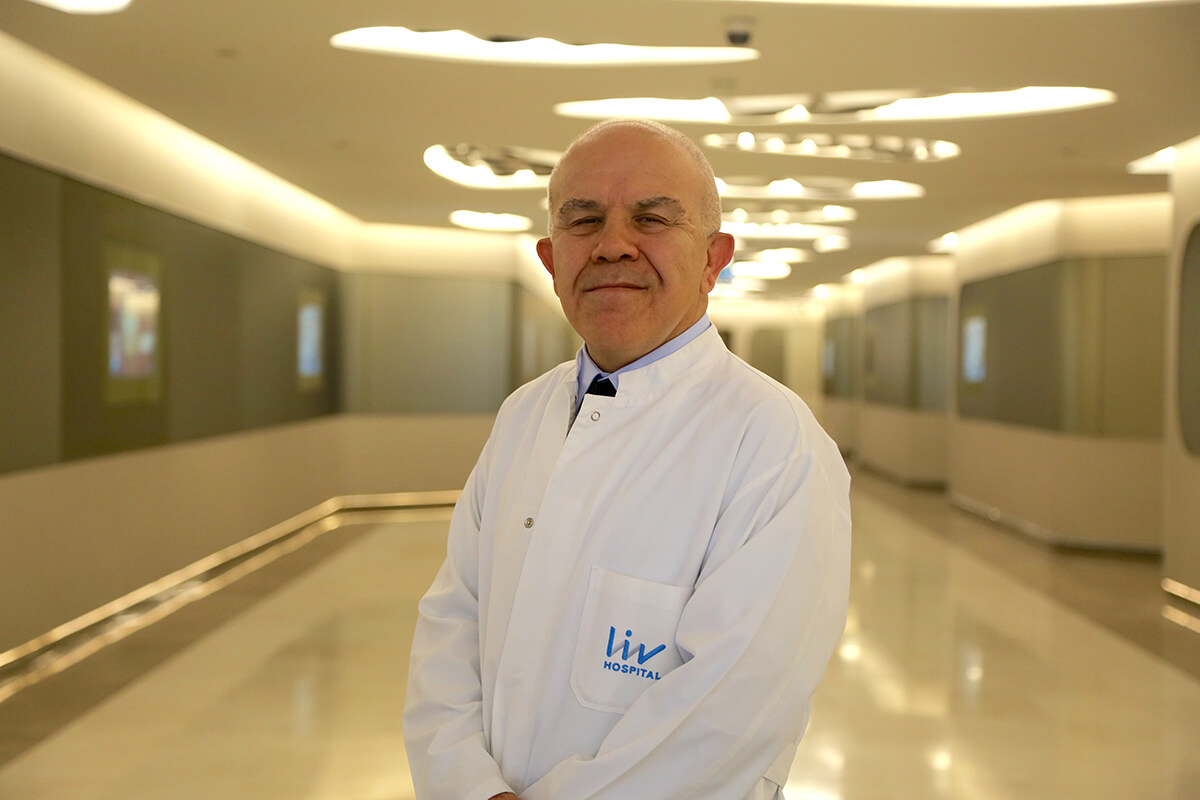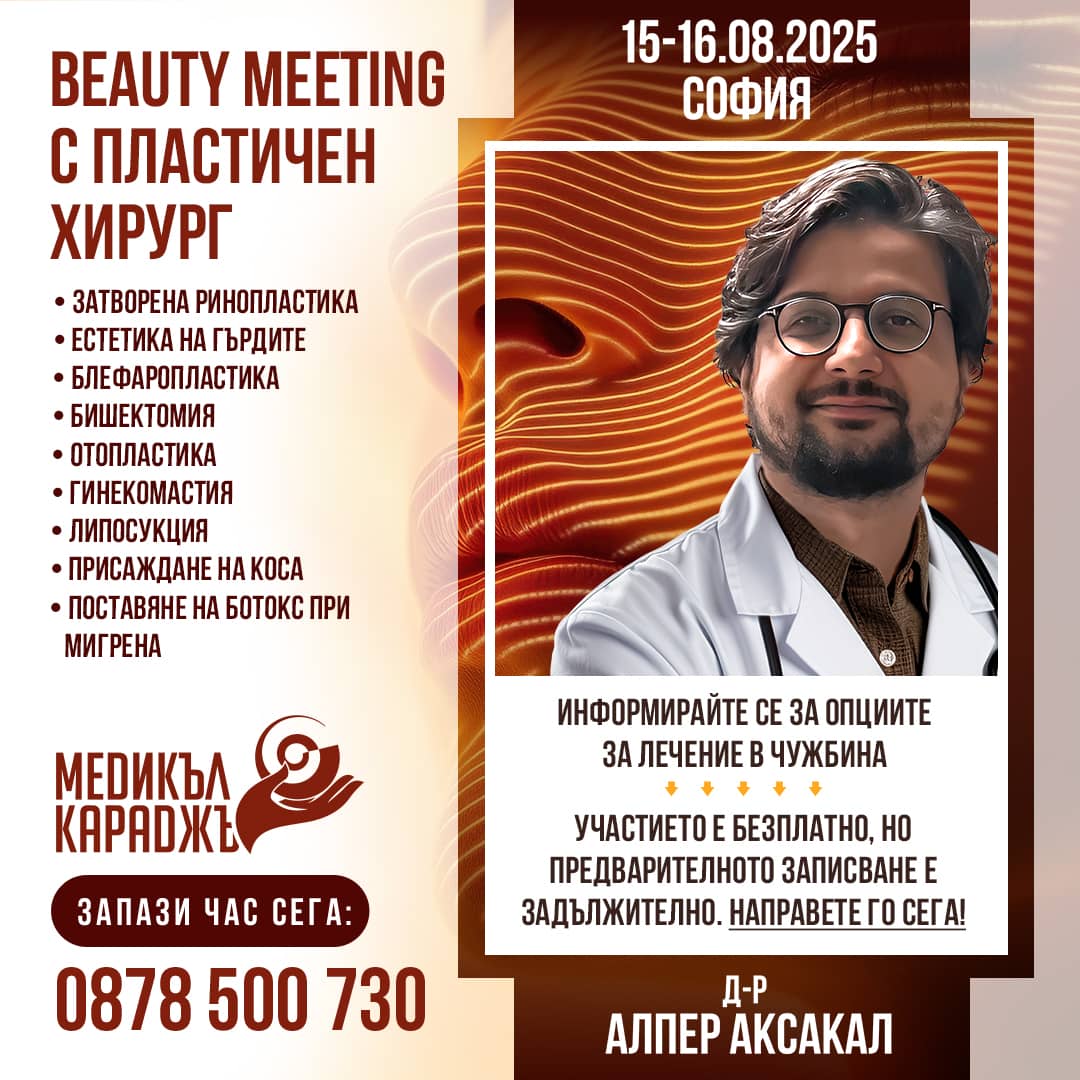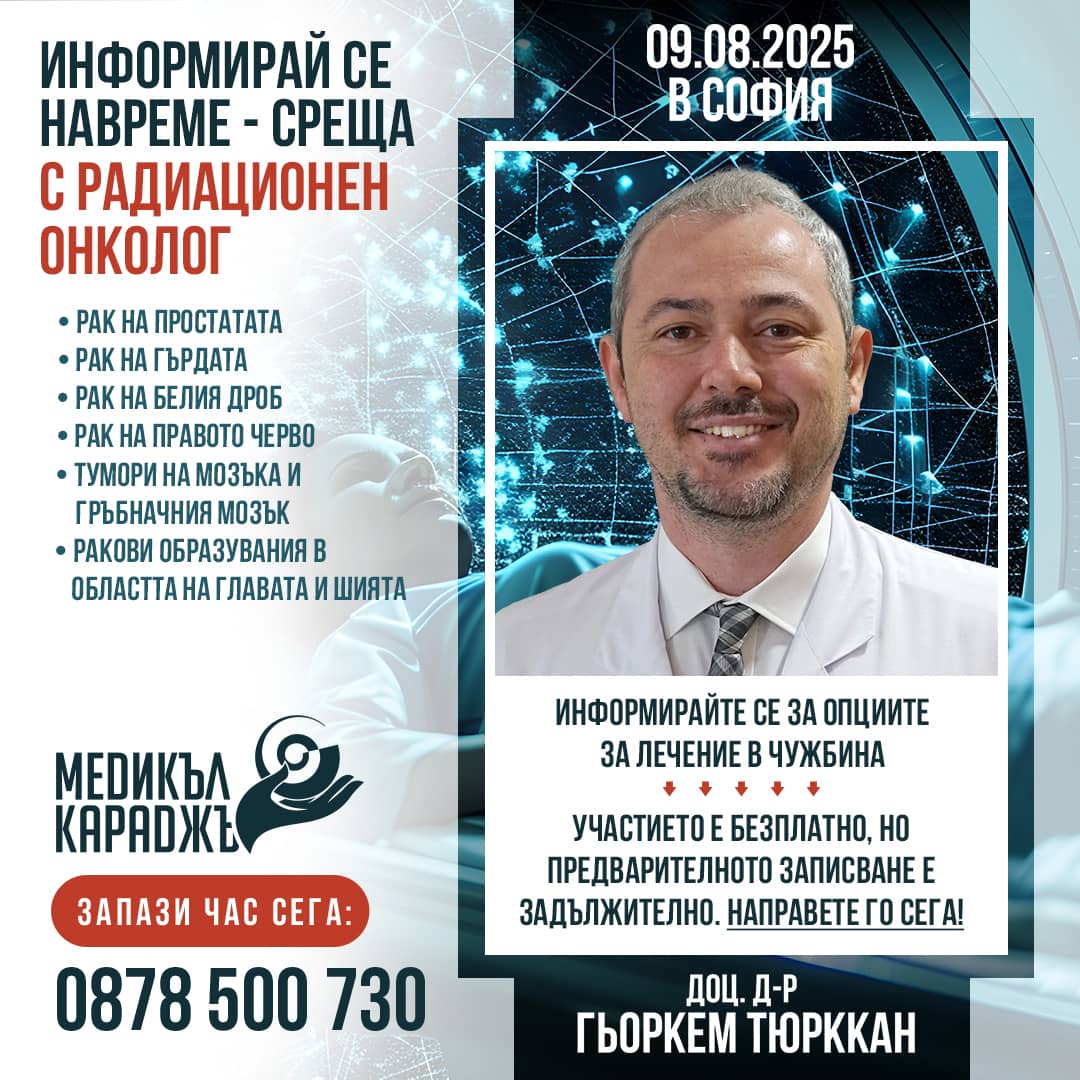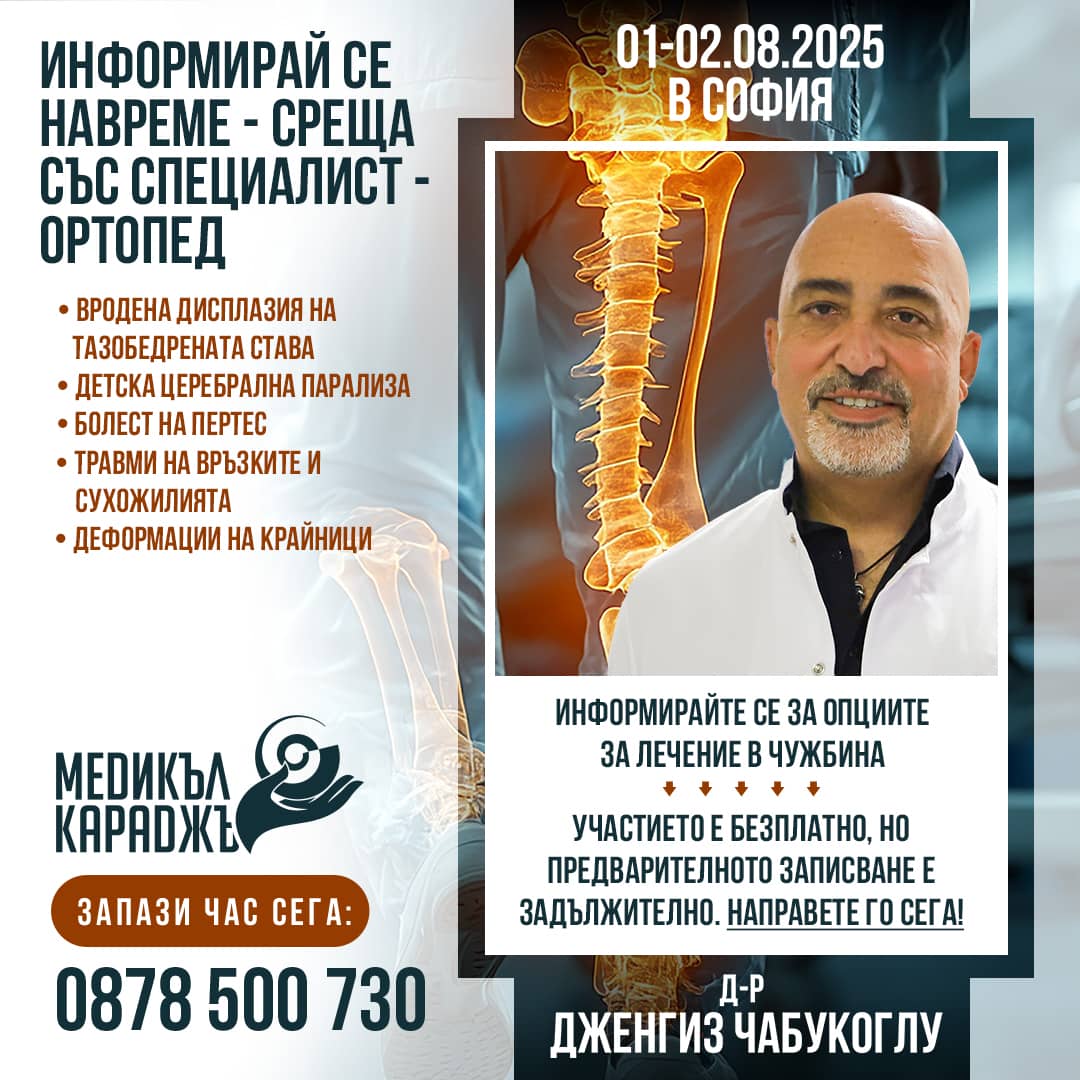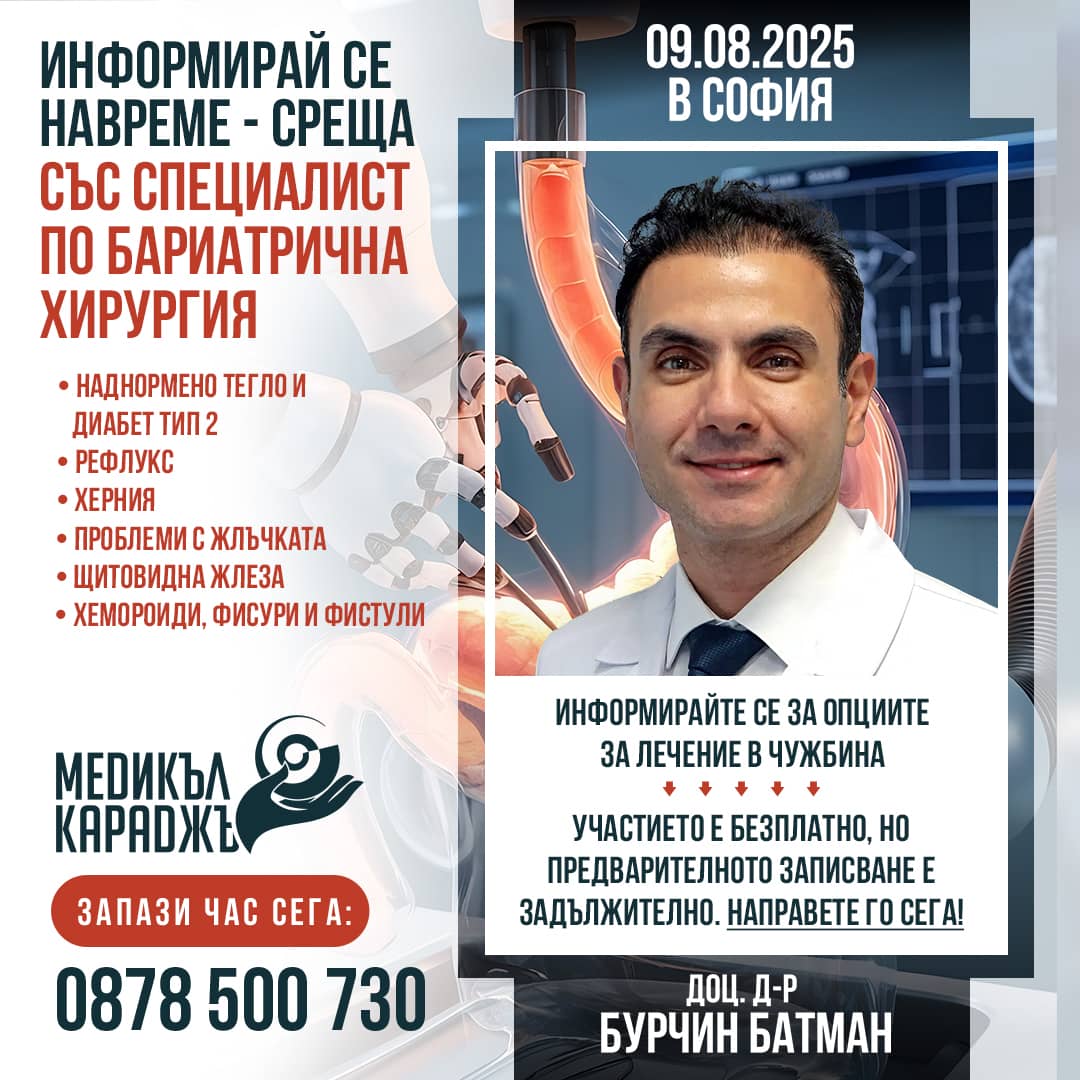On April 24, 2019, at the invitation of the manager of Medical Karadži - Zvezdelina Lutfi, Sofia will host prof. Tahir Karadeniz - urology specialist. Prof. Karadenazi is a specialist in the field of cardiology. Karadeniz will conduct free consultations for Bulgarian patients with urological problems and bladder cancer as part of our initiative to provide Bulgarian patients with access to the most advanced methods and technologies in medicine. The consultations are suitable for patients in need of a second opinion as well as for patients interested in treatment abroad, in particular Turkey.
Who is prof. Tahir Karadeniz?
Prof. Karadeniz is a specialist in uro-oncology, reconstructive urology, female urology and urinary incontinence. He completed his basic medical education at Cerrahpaşa Medical Faculty. She specialized in urology at the Department of Urology, Faculty of Medicine of Istanbul. After his military service, Prof. K. Karadeniz worked as a urologist at the Okmeydani Training and Research Hospital, later becoming the head of the Urology Department at the same hospital. In 2012, he worked at Medicana Hospital, Istanbul, where he was a urologist until 2017. To date, the specialist works and sees his patients at the high-tech LIV Hospital, Istanbul.
Prof. Tahir Karadeniz is a member of the following associations:
- Turkish Association of Urology
- European Association of Urology (EAU)
- Turkish Andrological Association
- Uro-Oncological Association
In his practice prof. Karadeniz has published 26 international and 40 national articles.
The most common urological diseases Prof. Kidney stones and bladder cancer. The most innovative approach he has applied to the treatment of bladder cancer complications is the creation of an artificial bladder from the bowel.
Bladder cancer
Bladder cancer is the most common urinary tract cancer and ranks 7th in men and 17th in women in terms of the number of patients suffering from it. The incidence of the disease is 9/100,000 in men, 2/100,000 in women. The ratio varies according to the risk factors to which individuals are exposed without regard to their sex. Although it is most commonly seen in those over the age of 70, the threshold for incidence has now fallen to childhood.
Risk factors
Risk factors vary depending on different types of cancer and a person's personal characteristics and habits. Smoking, genetic family characteristics and exposure to carcinogenic factors are among the important factors that allow the disease to develop.
Symptoms
The most important symptoms are the observation of bleeding with urine, a burning sensation during urination and pain in the bladder area. Patients with one of these symptoms should consult a doctor.
Treatment
Superficial bladder cancers are found only in the lining of the bladder. Tumour tissue is taken by TUR operations performed by accessing the urinary tract. If the examination of the samples reveals high-risk superficial bladder cancer, treatment continues with intravesical administration of drugs and a control cystoscopy is performed at 3-month intervals.
If the cancer spreads deeper to the bladder muscle, a full operation is done to remove it, along with creating a new one from the bowel. Another option is to surgically divert the urine pathway and take it outside the body to an orifice (stoma), ending with a drainage bag. In either case, the patient may need radio or chemotherapy.
Artificial bladder (from the intestine)
In some types of bladder cancer, the disease can only be treated by removing it. If the cancer has spread deep into the muscle layer of the bladder, if there are very large tumors near the muscle tissue, or in patients who do not respond to TUR Tm surgery and BCG treatment, the possibility of metastasis is very high. In such cases, in order to save the patient's life, a surgical operation called "Radical Cystectomy" must be performed, in which the bladder, prostate, seminal vesicles and lymphatic tissues around the large veins are removed.
How will patients urinate after bladder removal?
There are many methods of doing this, but the most commonly used is the "ILEAL CONDUIT" method, in which the two urinary tracts (ureters) are connected to the stoma (opening) of the stomach, using 12-15 cm of small intestine for the connection. The urine coming from the ureters is collected in a bag and patients have to change it once every 2-3 days when it gets full.
An important alternative to this traditional method is the "ARTIFICIAL PICTURE MECHUR OF RED", called "ORTHOPIC PICTURE MECHUR", which has been applied for 15 years in developed countries. Liv Hospital surgeons have been successfully performing this procedure for the past 12-13 years.
What is the operation?
In this operation, intestinal tissue of 50 cm length is separated and folded several times in order to acquire the shape of a "sphere", so that it can resemble the bladder in appearance and functionality. In this way, its capacity and internal volume are expanded in order to collect urine. At one end of the sphere-shaped small bowel, two ureters (urinary tubes) are tied, an anastomosis is made, and at the other end of the new bladder, the same is done for the external urinary tract.
The incidence of daytime urinary incontinence after this operation depends on the absence of damage to the urinary retention valve (sphincter) during bladder removal and if the surgeon is very experienced, this problem will not occur.
A normal healthy person has a bladder capacity of about 400 ml. Patients who have undergone bladder surgery (artificial bladder from bowel) reach this bladder capacity in about 4-6 months.
Life on an artificial bladder
There is no such concept as artificial bladder life. As long as the patient is alive, he or she will have no problems with the newly created orthotopic bladder. The first surgery we ever did in this regard was 13 years ago, and we are still seeing our first patient today.
During cystoscopic (endoscopic) imaging of a patient 3 years after his surgery, it was found that the artificial bladder had a capacity of 500 ml and was very difficult to distinguish from the bladder of a healthy person.
Kidney stones
The presence of stones in the kidneys can significantly disrupt a person's quality of life, hampering him in life with pain and symptomatology of another nature. In addition, one of the most important risks that untreated kidney stones can cause is infection. Symptoms such as high fever, chills, shivering, can occur in the presence of infection.
Kidney infections can damage kidney tissue. The occurrence of infection complicates the treatment of the kidney stones that cause it. Therefore, it is wise to make treatment plans before a kidney infection develops. If the stone remains untreated in the kidney or urinary tract for a long time, another risky situation that can breed is kidney dysfunction. All of these medical conditions can lead to the loss of a kidney.
When the patient cannot dislodge a stone, regardless of size, for a period of 3-4 weeks or the stone is too large (7-8 mm or more), interventional treatment is planned.
All patients interested in free consultations with prof. Tahir Karadeniz on April 24, 2019 in Sofia, should make an appointment in advance at the following numbers Health Information Center Medical Karadži: 0879 977 401 or 0879 977 402.

